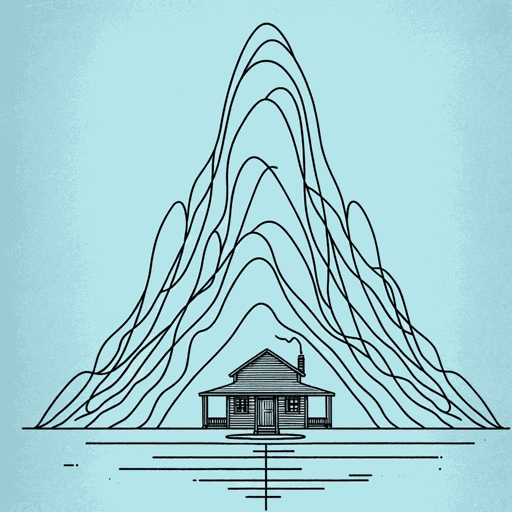19 pages • 38 minutes read
Derek WalcottRuins of a Great House
Fiction | Poem | Adult | Published in 1953A modern alternative to SparkNotes and CliffsNotes, SuperSummary offers high-quality Study Guides with detailed chapter summaries and analysis of major themes, characters, and more.
Poem Analysis
Analysis: “Ruins of a Great House”
Derek Walcott's poem “Ruins of a Great House” utilizes the decaying estate as an extended metaphor for colonization and imperialist power. The ruins of this sprawling manor indicate the wealth and prosperity of those that once occupied it and, by extension, represent the atrocities committed by colonial powers to achieve that level of wealth and status. The speaker is painfully aware of this connection as he walks through the grounds, sensing the pain and injustice that this building represents. But the speaker has an even more personal issue that he does not address outright; instead, he leaves the reader clues throughout the text. These clues are the many literary references to great English writers. This secondary tension complicates the way the speaker views the ruins of the manor and slowly alters and shifts his perspective over the course of the poem.
In the first stanza, the speaker compares the broken stones of the crumbling house to the scattered remains of human body parts with the Latin phrase “disjecta membra” (Line 1). The direct translation of this phrase is “scattered limbs.” It is a quote from the Roman poet Horace, who compared fragmentary poetry to the dismembered “limbs” of a poet (Satires 1.
Related Titles
By Derek Walcott

A Careful Passion
Derek Walcott

Adam's Song
Derek Walcott

A Far Cry From Africa
Derek Walcott

Dream on Monkey Mountain
Derek Walcott

Love After Love
Derek Walcott

Midsummer XXVII
Derek Walcott

Omeros
Derek Walcott

Pantomime
Derek Walcott

Sabbaths, WI
Derek Walcott

The Almond Trees
Derek Walcott

The Flock
Derek Walcott

The Schooner Flight
Derek Walcott

To Return To The Trees
Derek Walcott

